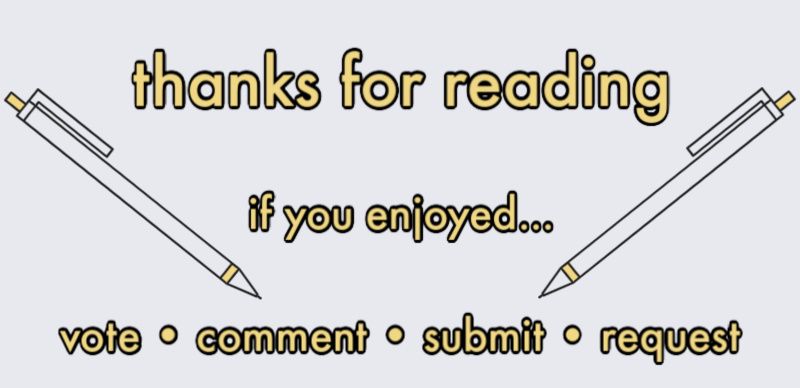Tip #21: Pacing Your Story
Author: KeiraKnox1
Requester: IsaiahLeIstya
Category: Writing Tips

Most writers—and even some readers—know that pacing is very important, whether you write short stories, full-length novels, or an entire series. But why is it so important? And how can you make sure to master it in your writing?
I have a few quick tips to ensure you've mastered pacing in your story.
But first, what is pacing? Pacing in fiction refers to the speed in which your story unfolds—the rhythm; every rise and fall of the plot points and the story's events. Basically, it's how fast or slow you've written your story to be told to readers.
Why is it important? It's important to develop a good pace in your novel because without it, your readers can get bored and be less willing to finish your novel, and the narrative can feel stilted or disjointed. It's important to balance faster- and slower-paced sections in your work to create a story that flows seamlessly, develops plot and characters effectively, and engages readers consistently.
Structure Your Story
This basically boils down to planning your story. Know how you want it to end, what major plot points you want, and, if that's what works for you, a chapter-by-chapter plan for your story.
Doing so helps you pick out where you want to increase your pace and turn that tension dial all the way up, and where you want to slow down, and how these points rise and fall rhythmically.
Or, if you've already written your first draft, it can help you identify pace inconsistencies and where/how to smooth it out.
Use Sentence/Paragraph/Chapter Length
One of the easiest ways to set your pace is through the length of sentences, paragraphs, and chapters.
In a fight scene, for example, you want to keep things fast-paced and exciting. To achieve this, use short sentences and shorter paragraphs to keep readers' eyes flying over the words. Perhaps end the chapter on a cliffhanger to keep them flipping pages, desperate to find out what happens next.
To keep things slow, on the other hand, the opposite is best. Perhaps you want to delve into the character's personality or past. That would not be a place to make reader's eyes fly over the words. Here, you can afford the pace to be lyrical to urge the readers to linger on each word, but not in a way that's boring.
Use Heightened Detail
When you wanna slow down—especially for moments you want to highlight—it's a good idea to use heightened detail. Kind of like a slow motion scene in a movie. You can see each character in the scene and experience a single moment in exquisite detail.
This can have a similar effect in writing. This sort of slow-mo moment is perhaps most effective when juxtaposed with an otherwise fast-paced scene, adding interest and drawing attention to a climactic moment.
What Is and Isn't Special
When editing my books, the thing I find perhaps the most useful is knowing what is and isn't important within the narrative. If there's a scene included that doesn't quite serve a purpose other than a filler, it might work to get out of a creative rut when writing, but within the actual story, it's not all that important. If it was boring for you to write, there's a high chance it's gonna be boring to readers.
Or, if there's a scene you loved writing but it doesn't serve much of a purpose, maybe it's best to cut it. I like to save my 'deleted scenes' to use for other books where the scene might be important.
Despite that, every writer knows that self-editing is subjective and we may not catch everything. Which is where the next point comes into place.
Ask for Help
Oh, yes, the thing most of us dread. No one wants someone else to tell them how to write their book. But, we all know that we need help from others to grow.
If you've gotten yourself a beta reader, be sure to ask them about your pacing. An experienced beta reader will be able to tell you when things felt a bit rushed or too slow. If it's just-right, chances are they won't notice it.
Don't Assume Good Pacing is Fast-Paced
This directly translates to the first tip. Good pacing does not always mean it's gotta be fast-paced. If you rush everything, the reader doesn't get any information and will, more often than not, stop reading the book. Yes, part of mastering pacing is ensuring the story doesn't lag and readers don't get bored. But the answer to this isn't making every single scene fast-paced.
The key is to create a healthy medium of both—and be consistent. Readers don't want choppy, randomly paced scenes. Take it from a reviewer, it can bug readers. But, both types are just as essential as the other. And knowing when to place each type of scene is the key to good pacing.

Want to submit your own Tip?
Comment in this book and email your entry to [email protected]. We'll review it, and if we think it's well-written and helpful to the Wattpad community, we'll post it! Your entry may be something you have written previously, even if it is published elsewhere. (=
Have a Request?
Comment on the first chapter with the topic you'd like to see. Your suggestion might just turn into an article!

Bạn đang đọc truyện trên: AzTruyen.Top